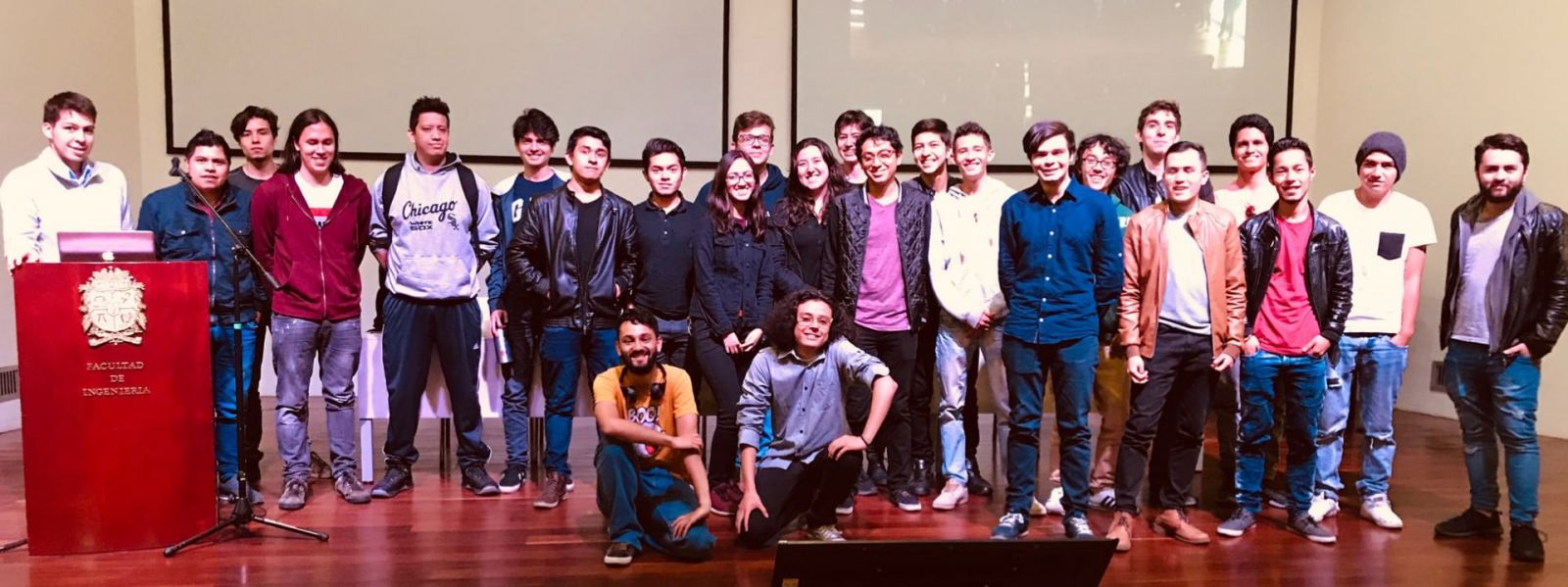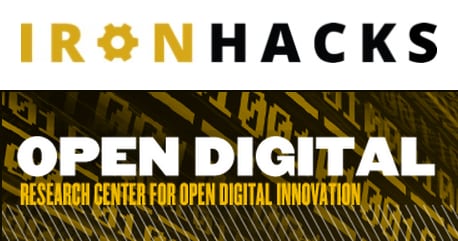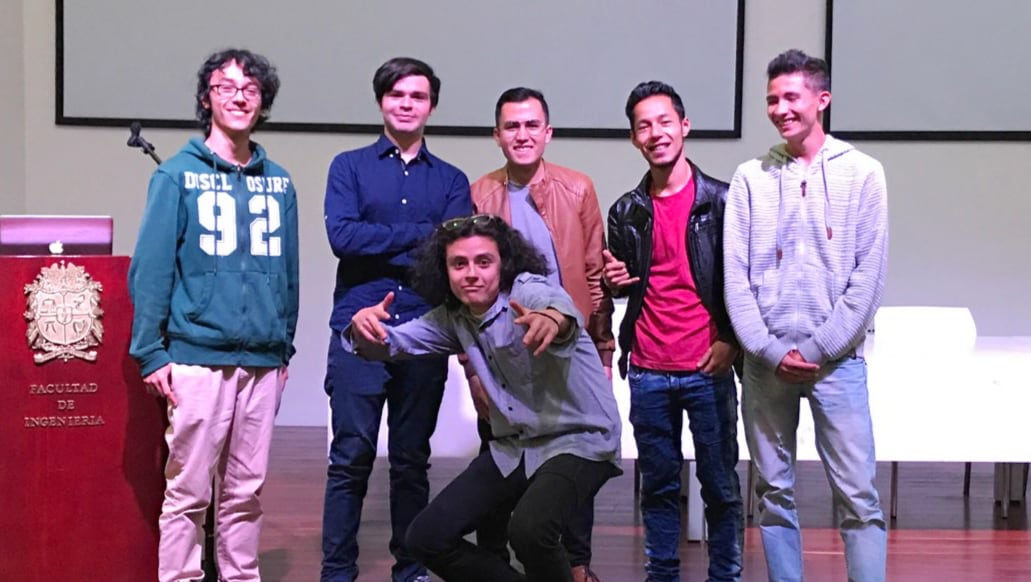
Students from the National University of Colombia (UNAL) participated in Purdue’s Spring 2019 IronHacks competition, winning first, second and third places in each of the first and second competition groupings.
 IronHacks, an eight-week class organized by Purdue’s Research Center for Open Digital Innovation (RCODI), combines active learning and application (app) development with a competition focused on open, real-world data released by federal agencies and corporations. During the five-stage, iterative, virtual competition, students utilize open data to create novel and useful online apps for citizens in areas such as housing and healthcare. The competition encourages students to focus on user-centered design of data-driven interfaces with graphs and maps that support end-user decision making.
IronHacks, an eight-week class organized by Purdue’s Research Center for Open Digital Innovation (RCODI), combines active learning and application (app) development with a competition focused on open, real-world data released by federal agencies and corporations. During the five-stage, iterative, virtual competition, students utilize open data to create novel and useful online apps for citizens in areas such as housing and healthcare. The competition encourages students to focus on user-centered design of data-driven interfaces with graphs and maps that support end-user decision making.
For the spring 2019 competition, participants were challenged to create an app to help university students find safe, affordable housing in the New York area. For the first treatment group, UNAL students José Fernando Morantes Florez, Jhonatan Sandoval Velasco, and Juan Pulido won first, second and third, respectively. Cristian Adolfo Baquero Pico, Cristian Alejandro Mantilla Duque, and Julián David Rodríguez Ruíz won first second and third, respectively, for the second treatment group.
“I learned a lot during this competition,“ said Baquero Pico. “It was helpful for my personal and professional life. And it was very satisfying to know that the effort I put into the competition was rewarded with first place for my group.”
“Purdue IronHacks gave me the opportunity to work with technologies I had never worked with before,” said Mantilla Duque. “Working through problems to find a solution led me to new knowledge. It‘s important to develop myself for the software engineering field.”

Nicolás Múnera Garzón, a professor at UNAL whose students participated in IronHacks, said he was grateful for the opportunity it provided.
“Purdue IronHacks was a great experience for me as a teacher. Students enrolled in the software engineering class with me learned not only about the common approach for crafting software that fulfills all technical requirements but also about the need to deliver for real users,” Garzón said. “I’m glad and thankful that we worked with incredible people at Purdue.”
During the competition, participants have access to tutorials, standardized libraries and packages, and virtual help sessions. While they are engaging in an active learning process, their apps are being evaluated using automated techniques and expert judgement.
“We provide real-time, targeted feedback to accelerate students’ learning process,” said Sabine Brunswicker, associate professor of technology leadership and innovation and director of RCODI. “IronHacks helps to improve their programing skills and their ability to hack complex problems with open data and open standards.”
Purdue IronHacks is sponsored by the National Science Foundation and other partners, including Amazon, Red Hat, and the state of Indiana.
Sources: Rachael Tan and Sabine Brunswicker
